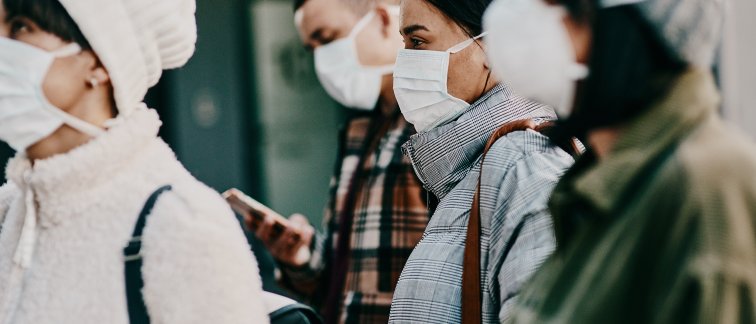The COVID-19 pandemic took the world by surprise, highlighting the urgent need for better preparedness against future viral outbreaks. To tackle this, experimental immunologist Prof. Theo Geijtenbeek and viral immunologist Dr. Neeltje Kootstra are developing strategies to neutralize viruses before they can spread. With the TRIM4Health project, they are pioneering innovative antiviral approaches to prevent the next pandemic. Below are their insights on the project
1. What is TRIM4Health?
Prof. Geijtenbeek: ‘TRIM4Health is a study in which we are looking for a way to make viruses harmless. We do this by finding the proteins in cells that the virus needs to multiply. We ‘trim’ those proteins, hence our name ‘trim for health’. We use llama antibodies from the QVQ company's biobank. Llamas have antibodies that are smaller and simpler than human antibodies. This makes them easier to introduce into human cells, which we do during our experiments in the lab. What we want to develop falls under the heading biologicals.'
2. What are ‘biologicals’?
Dr. Kootstra: ‘Biologicals are the antibodies given to patients with inflammatory diseases - such as Crohn's disease – to eliminate inflammatory proteins. We call them biologicals because the antibodies are not made in factories. Through an infusion or injection, patients receive these antibodies into their bloodstream, which then ‘capture’ all inflammatory proteins. The antibodies are not synthesised, they are made truly by the cells themselves.’
Prof. Geijtenbeek: ‘We now want to go one step further by allowing genetically modified biologicals to enter the cell and eliminate the proteins involved in virus replication there.’
3. How far along are you now?
Dr. Kootstra: ‘We have first provided proof of principle: proof that the system works, by introducing llama antibodies into cells and having them “cut down” viral proteins. And we have proved that we have all the requisites to make this system work.’
Prof. Geijtenbeek: ‘We asked QVQ: give us 10 million llama antibodies, directed against everything in a human cell. After genetic modifications, we put those antibodies into human cells. We will start doing that in the next month. Then we infect the cells with SARS-CoV-2, the coronavirus. Normally, cells die from SARS-CoV-2 infection. So if they survive, you know there are blocking antibodies in them. You just don't know which protein they are directed against. Then you have to find out: why do they block? Besides, you can't just trim proteins from every cell with impunity, because some proteins are crucial for a cell to survive.’
4. Why do you think this has a chance of success?
Prof. Geijtenbeek: ‘We started TRIM4Health with an antibody against HIV, the virus that causes AIDS. From QVQ, we got the genetic information of an antibody directed against an HIV protein. Using genetic techniques, we added a ‘tail’ of human antibodies. All antibodies are supposed to have such a tail to function outside the cell. We inserted that anti-HIV protein into cells infected with HIV. We then saw that the cell remained almost completely HIV-free: it cannot replicate virus. So the virus is completely blocked by this system, while that cell remains alive.’
Dr. Kootstra: ‘So you can also make this for another virus, such as the coronavirus SARS-CoV-2.’
Prof. Geijtenbeek: ‘There are vaccines against SARS-CoV-2, but no proper drugs. And you can expect the next SARS-CoV to be on its way. If we can make antibodies that can stop multiplication of SARS-CoV-2, that system could also be effective against new SARS viruses. We want to develop antibodies that are widely applicable, in the hope of destroying the next virus.’
5. You are working with research institute QVQ, which is co-funding the research. Are you tied to their research question and revenue model?
Prof. Geijtenbeek: ‘Through Health~Holland, affiliated with the Ministry of Health, Welfare and Sport, this research is funded. When you start such research at Amsterdam UMC, the idea is that you do it in combination with a company, in the form of money or people. The hope is always that this will eventually allow the research to be translated into concrete products. QVQ does not get rich from it - neither do we - but the people of that company learn from it. And they can in turn use that knowledge for other research. We also learn from them. And we have a large network, which is nice for them. It is a small company that is mainly academically interested and wants to help.’
Learn more about our AI&I Immunology research

